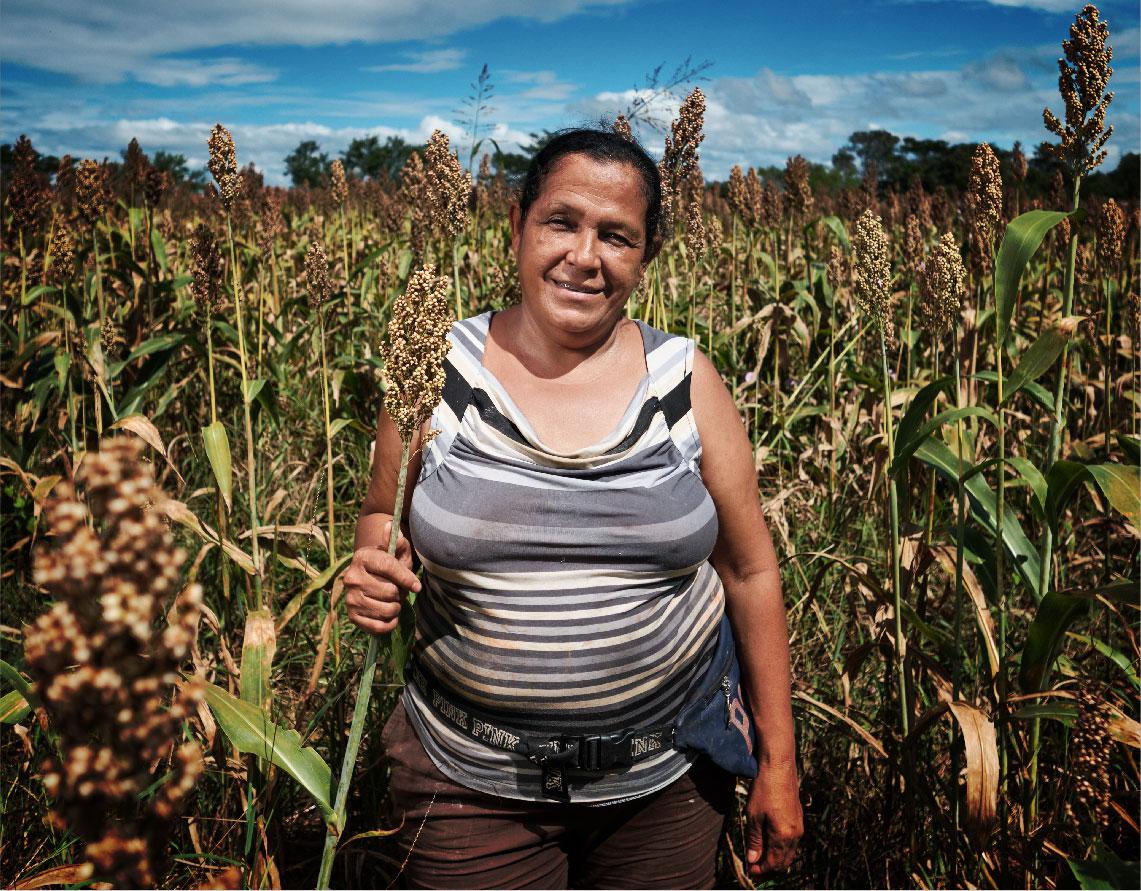Nourishing the Future by Building Resilient Agricultural Communities in Central America
Ana Beatriz Chile Joaquín lives with her six children in Guatemala. Her parents were garbage pickers in the local landfill, and Ana spent eight years doing the same job. But she was determined not to repeat that cycle with her children, so she got a job as a cook at the Francisco Coll School.
Melissa Esperanza Rendón Fajardo is a wife and mother of three children in San Marcos, Santa Barbara, Honduras. Because her husband ran out of work due to the pandemic, she decided to reactivate a roast chicken home sale venture. Her husband built her an oven and helped with preparation work while she took care of sales.
María Helena Parrales and her daughter, Maria Judith Barrera (28), leave their home in the community of León, Nicaragua, and walk a few meters away to disappear into a field of corn every morning. They emerge later with huge smiles and containers full of pipiáns, as they are intercropping pumpkins in between their corn fields.
Addressing the underlying issues
These three women all had the support of CARE and Cargill through Nourishing the Future projects. This initiative aims to foster more prosperous and resilient farming communities and promote nutrition by training teachers and students on optimal nutrition practices and providing broader community engagement opportunities across Guatemala, Honduras, Costa Rica and Nicaragua.
Food security and nutrition issues are increasingly complex and interrelated with limited economic opportunity (especially for women), sub-optimal agricultural production and lack of access to markets, persistent inequality, poor access to nutritious food, climate change, and insufficient water and sanitation practices, among many others.
When solutions to these problems are implemented, communities see an increase in productivity, incomes, the resilience of small-scale food production and positive environmental impacts, all while contributing to women’s empowerment and nutrition education.
Maite Matheu, CARE Honduras Country Director, said “we know that increasing support on sustainable livelihoods and women’s empowerment during crisis is critical for families to have food on their tables – especially in the context of the hurricane and pandemic crises in the region, one of the worst across Central America. As CARE, we will continue working with Cargill, communities, local partners and women’s groups to advocate for more support for women and youth economic empowerment programs as a fundamental strategy to address root causes of food insecurity and poverty.”
This all goes to show that sustainable food systems are possible by proactively addressing injustice, improving rural livelihoods and building more inclusive systems.
Long-term, sustainable change
Ana is currently enrolled in the culinary workshops facilitated by Nourishing the Future in coordination with World Central Kitchen. At these workshops, she learned best practices for safe handling of food – critical skills in preventing the transmission of many diseases. Someday she hopes to have her own business focused on cooking.
Melissa was not only able to have a sustainable income during the COVID-19 pandemic, but she purchased more inputs for her business, including Pollo Norteño and oil. She is helping her oldest daughter through school.
María and her daughter are not only creating diversified nutrition sources for their own household consumption, but Maria is also president of the local cooperative, which is supporting members to establish family gardens and improve their productivity to sell their surpluses on the local market.
Feeding the world
By improving rural agricultural livelihoods and build more inclusive systems that provide access to the tools, knowledge and markets needed, we can achieve sustainable, long-lasting impact. Together with partners like CARE, we can improve the food system and help ensure food & nutrition security for all.

